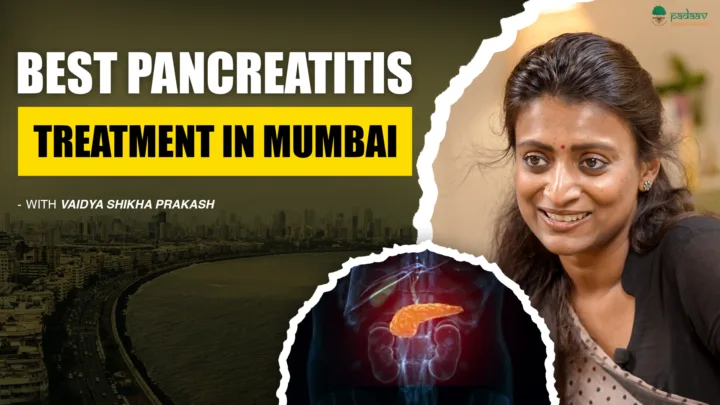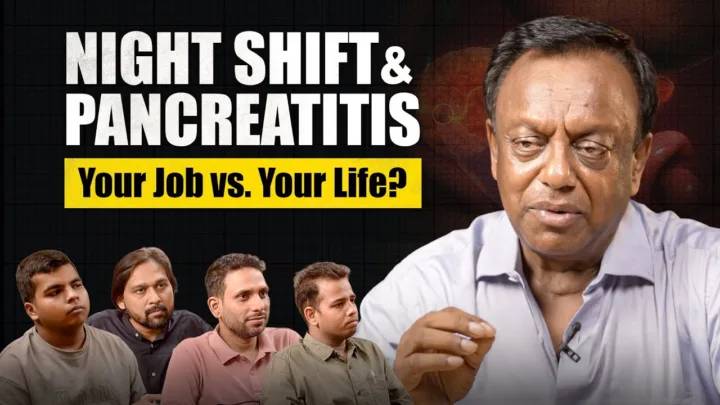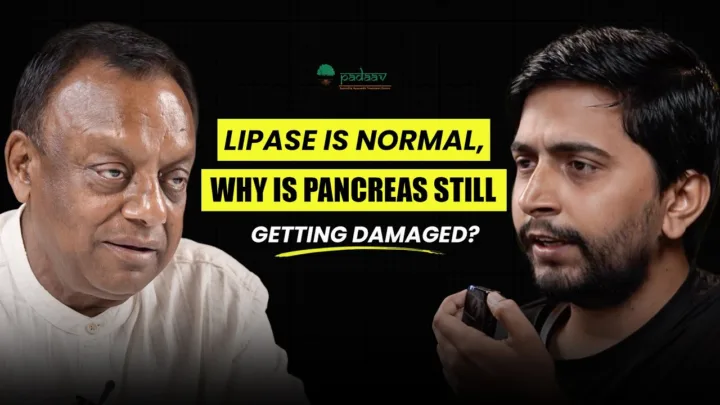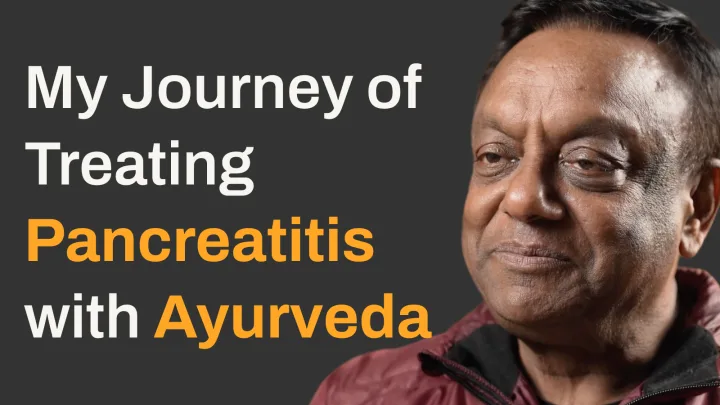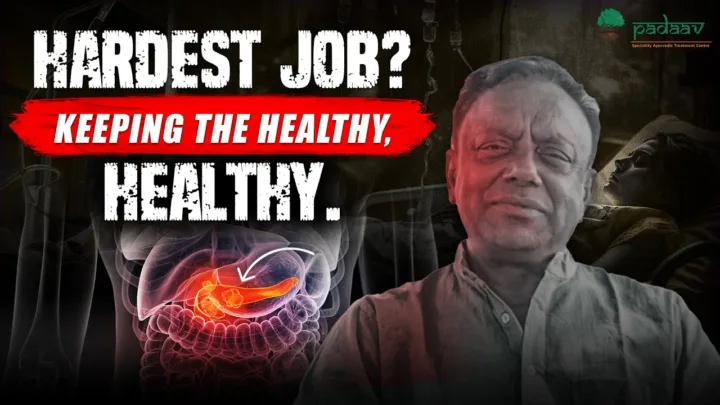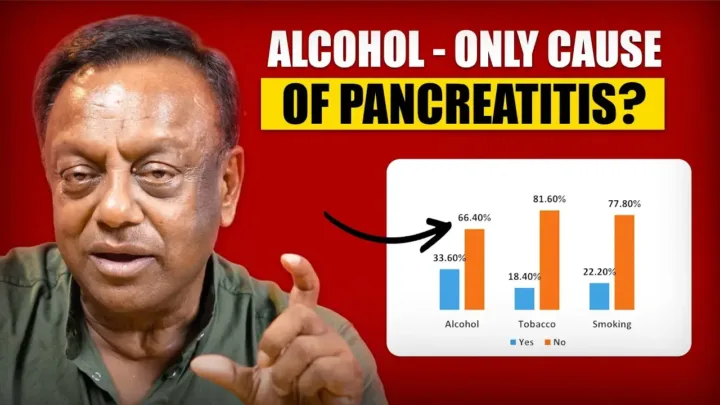In a unique discussion, Vaidya Balendu Prakash sits down with a group of young patients grappling with recurrent acute and chronic pancreatitis. These individuals, all successful in their own right, represent a modern paradox: they don’t fit the traditional profile of a pancreatitis patient, yet they suffer from a disease often blamed on alcohol and unhealthy habits. Through their personal stories and the Vaidya’s insights, this conversation uncovers the true, often overlooked, causes of pancreatitis and offers a path to healing that goes beyond conventional medicine.
The Unspoken Truth: It’s Not Always About Alcohol
A young woman named Richita, a professional from London, shares her 17-year struggle with chronic calcific pancreatitis. Despite her active lifestyle and frequent global travel, she has endured 15 to 20 attacks, often requiring stays in the ICU. She poses a fundamental question: “Why me? I don’t drink.”
This sentiment is echoed by many. Another patient, Pallav Gandhi, an IT engineer from Ahmedabad, and Vanshi, a young man from Muzaffarnagar, also express their confusion. They are all vegetarians and do not consume alcohol. Vaidya Prakash explains that conventional wisdom, often based on outdated research, is misleading. His own patient data reveals that a staggering 67% of his patients have never consumed alcohol, and another 20% rarely drink. The real culprits, he reveals, are often hidden in plain sight.
The Real Culprits: Lifestyle, Sleep, and Stress
Vaidya Prakash points to a more profound cause: a modern, irregular lifestyle. The most shocking discovery from his research is that 93% of his patients sleep after midnight. He connects this to the Ayurvedic principle of ratrijagaran (staying up late), which is a major cause of disease. This practice disrupts the body’s natural cycle, leading to oxidative stress and suppressing the production of melatonin, a hormone crucial for reducing inflammation in the liver and pancreas.
He explains the concept of Heena-ati-mithya yoga—doing things too little, too much, or at the wrong time. Skipping breakfast creates an imbalance of acid and alkali in the body. Eating at irregular hours, overeating, or eating again before the previous meal is digested all put immense strain on the pancreas, an organ just six inches long.
The Ayurvedic Path to Healing: A Holistic Approach
Vaidya Prakash’s approach to healing is holistic, addressing not just the physical symptoms but the underlying lifestyle imbalances. For a young student who walks 8-10 kilometers a day, he advises a four-month break from this exertion to allow the body to heal. He recommends a disciplined routine of eating and sleeping on time, as the body needs time to repair itself.
He introduces the concept of Ayurvedic medicine as more than just herbs and powders. He shares ancient wisdom about the properties of water, explaining when it acts as a tonic, a medicine, or even a poison. He emphasizes that healing is a combination of diet (ahar), lifestyle (vihar), and medicine (aushadh).
He also addresses the psychological toll of the disease. A patient’s fear of a recurring attack, a phenomenon he calls “phantom pain,” is a form of phobia that must be overcome. The goal of his treatment is to eliminate this fear, allowing patients to live without constant anxiety. As he states, “Pancreatitis is no more a fear.”
A Scientific Endeavor: From Experience to Evidence
The centerpiece of his treatment is a unique Ayurvedic formulation called Amar, a medicine he has been consuming himself for over two-and-a-half years. He shares that the medicine, which his father developed, has no side effects and has been rigorously tested. Scientists have confirmed that its ingredients toxic metals in their raw form are transformed into a safe, non-toxic mineral complex through the unique manufacturing process. This has led to a patent and commercial license for the medicine.
Despite the proven efficacy and patient testimonials, he faces challenges in gaining widespread acceptance from the modern medical community. He laments the lack of collaboration between Ayurvedic and modern medical doctors, which hinders large-scale research like randomized controlled trials. He expresses his hope that one day, science will fully unravel the mysteries of ‘Amar,’ proving that this ancient wisdom holds the key to treating an incurable disease.
Vaidya Prakash’s candid conversation offers a powerful message: the key to overcoming chronic diseases like pancreatitis lies in taking control of one’s life. By adopting a disciplined schedule, nourishing the body with a balanced diet, and addressing mental stress, patients can not only manage their illness but also achieve a state of complete well-being.

